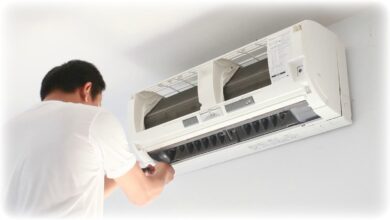The Invisible Guardians of Your Home: Circuit Breakers
Your home’s safety is largely dependent on systems you may not often think about. Among these unsung heroes, circuit breakers play a vital role in protecting your household from potential electrical disasters. Whether you’re a homeowner trying to ensure safety or an electrician in North Shore managing local electrical demands, understanding the importance of circuit breakers—and maintaining them—should be a priority.
This article will guide you through what circuit breakers are, how to spot when things go wrong, and why services like Electric Express Solutions are essential for ensuring your home’s safety and peace of mind.
Understanding Circuit Breakers
A circuit breaker is more than just a switch in your home’s electrical panel—it’s the guardian of your electrical system. Whenever there’s a surge or fault in the circuit, the breaker “trips” to stop the flow of electricity, preventing potential damage to your appliances and reducing the risk of fire or electric shocks.
How Circuit Breakers Work
Circuit breakers react to electrical disruptions like power surges, short circuits, or overloading. When the system detects an anomaly, the breaker interrupts the current by flipping to the “off” position. This mechanism is designed to protect your home’s wiring and ensure that everything functions safely.
Types of Circuit Breakers
Not all circuit breakers are the same, and different homes might require varying types of breakers depending on usage and safety needs. Here are the most common types:
- Standard Circuit Breakers: These are the most common types found in homes, designed to handle normal power surges or overloading.
- Ground Fault Circuit Interrupters (GFCIs): These are essential in areas such as bathrooms or kitchens where water exposure is high, as they provide additional protection against electric shocks.
- Arc Fault Circuit Interrupters (AFCIs): These are designed to detect and prevent electrical arcs, which are responsible for many electrical fires.
If you’re unsure which type is best suited for your home, a visit from a professional, like the experts at Electric Express Solutions, can help you evaluate your specific needs.
Signs of a Faulty Circuit Breaker
Even the best circuit breakers can encounter problems over time. Be on the lookout for these common warning signs of breaker issues:
- Frequent Tripping: If your circuit breaker trips more often than usual, it could indicate underlying electrical problems or an overloaded circuit.
- Burning Smell: A burning odor near your electrical panel is a clear sign that something isn’t right. This might be due to melted wiring or overheating components.
- Physical Damage: Visible damage like scorch marks or cracks on the breaker means it should be replaced immediately.
- Failure to Reset: If a circuit breaker won’t stay in the “on” position even after resetting, it’s likely malfunctioning.
Ignoring these warning signs could lead to severe electrical hazards, making it crucial to act swiftly. Consulting an experienced electrician in North Shore is your next step to resolving these issues safely and efficiently.
The North Shore Connection
The picturesque North Shore area has unique electrical challenges due to its mix of modern homes and older properties. While newer homes are typically equipped with up-to-date electrical systems, older homes may still rely on outdated breakers. This introduces risks such as insufficient capacity to handle modern appliances or degraded components that compromise safety.
A professional service like Electric Express Solutions specializes in addressing these North Shore-specific challenges. Whether it’s upgrading outdated electrical systems or maintaining existing setups, their local expertise ensures your home’s safety and compliance with current standards.
Electric Express Solutions: Your Circuit Breaker Experts
When it comes to circuit breaker maintenance and electrical repairs, there’s no substitute for professional assistance. Electric Express Solutions has built a reputation as a trusted electrician in North Shore, offering a wide range of services tailored to the evolving needs of local homeowners.
Here’s what sets Electric Express Solutions apart:
- Expert Knowledge: Their team is skilled in diagnosing circuit breaker issues, conducting reliable installations, and performing preventive maintenance.
- Personalized Service: They understand that every home is unique and offer solutions customized to meet your specific needs.
- Focus on Safety: Electric Express Solutions prioritizes safety above all else, ensuring that your system adheres to the highest standards.
By trusting experts like Electric Express Solutions, you ensure that your circuit breakers—and by extension, your home—are in safe hands.
Safety Tips and Best Practices for Homeowners
To prevent electrical hazards, it’s essential to take proactive steps in maintaining your circuit breakers. Here are some practical safety tips:
- Regular Inspections: Check your circuit breaker panel every six months for signs of wear or damage. If you notice anything unusual, call a professional.
- Avoid Overloading Circuits: Spread out your appliance usage among different outlets to prevent overloading any single circuit.
- Upgrade When Necessary: If you have an older home, consider replacing outdated breakers with modern ones like GFCIs or AFCIs.
- Know When to Call the Pros: DIY fixes can be tempting, but improper handling of electrical systems is dangerous. If you’re unsure, rely on Electric Express Solutions for professional assistance.
By following these best practices, you can enhance the longevity of your circuit breakers and ensure the safety of your home.
Conclusion
Circuit breakers are the silent protectors of your home, working behind the scenes to shield you and your loved ones from potential electrical dangers. From understanding their functions to recognizing signs of trouble, staying informed about these critical components is key to maintaining a safe living environment.



